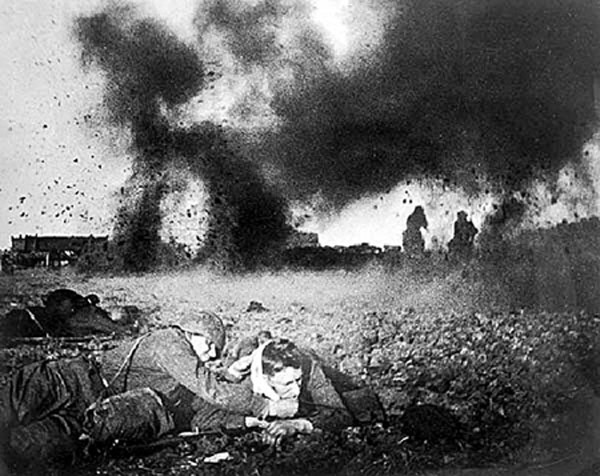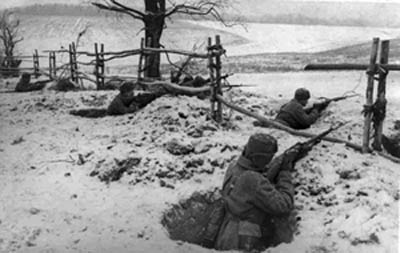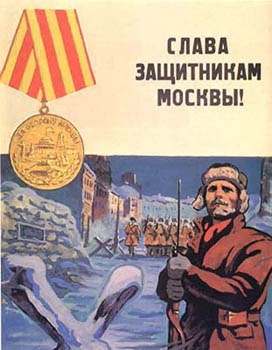Medals: Medal For Defense of Moscow
Veterans who participated: Moisei Chernoguz, Beniamin Frumkin, Arkadi Novokolsky, Philip Potiyevsky, Leonid Sheinker, Isaak Zarembo

militaryeducation.org
Initially, Moscow was not the prime objective of Operation Barbarossa. There was disagreement between Hitler and his generals over the ultimate aims—both agreed that defeating the Soviets was the main goal, but Hitler also valued capturing economic resources, while Chief of Staff Franz Halder wanted to push to Moscow to destroy morale and prevent the Soviets’ capacity to resist. “The Defense of Moscow”, lasting from October 1941 to April 1942, refers to the German offensive targeting the city—known as Operation Typhoon—and the subsequent Soviet counterattacks. The Nazis anticipated their entire invasion of the USSR would be successfully concluded before winter began in 1941. Though they were able to advance deep into Soviet Territory, the German army used considerably more resources than expected. They were also unprepared for the harsh Soviet winter.

albumwar2.com
Red Army soldiers in the winter near Moscow
By November 1941 a large amount of German equipment was rendered unusable due to weather conditions and they were stretched well beyond the limits of their supply lines. In contrast, The Red Army was also taking heavy losses but was able to replenish their supplies. Soviet forces launched a counter offensive in December of 1941, aided by freezing weather and an exhausted enemy. The Soviet counteroffensive that ultimately pushed the Germans out of Moscow began in early January. The battle was costly for both sides, with the Nazis suffered 615,000 dead and wounded soldiers compared to near 2.5 million from The Red Army. Though far from a decisive victory, The Red Army effectively stopped the German advance into Russia, setting up a longer war of attrition on the eastern front, which Germany lacked the resources and troops to sustain. The successful defense of Moscow also raised Soviet morale and was used throughout the war in propaganda material.

collectthingssoviet.com